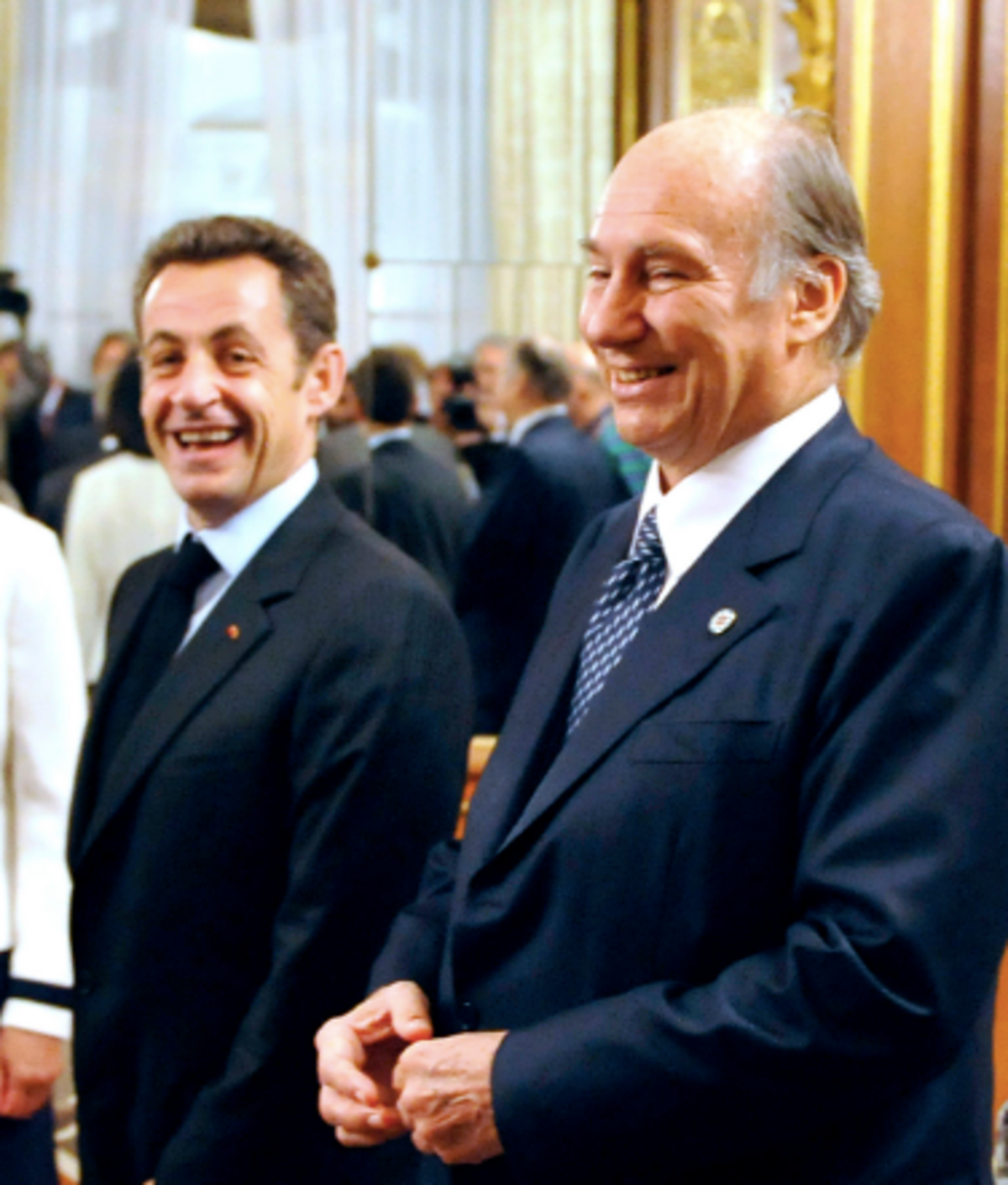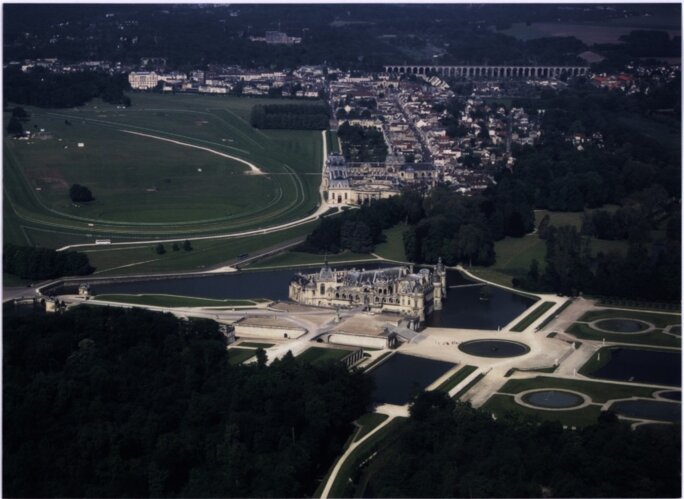In a letter signed in 2008, former French President Nicolas Sarkozy used exceptional powers to exonerate one of the world’s richest royals, Prince Karim al-Hussaini, a.k.a. the Aga Khan, from paying any form of tax in France, where he is a resident, Mediapart can reveal.
The fiscal status was approved, apparently after a request by the prince, by then-budget minister Eric Woerth, mayor of, and Member of Parliament for, the town of Chantilly, north of Paris, where the Aga Khan initiated and largely funded the financial rescue of the town’s historic racecourse and equestrian centre.
Woerth, 56, is currently cited in two judicial investigations into suspected corruption, one involving the financial affairs of L’Oréal heiress Liliane Bettencourt - a far-reaching scandal that eventually forced his departure from government - the other into the sale of state-owned forest land to a horse-racing company in Compiègne, close to Chantilly.
Sarkozy, who left office in May after he was defeated in his re-election bid by François Hollande, gave the Aga Khan, who lives on a large estate close to Chantilly, a rarely-used international diplomatic “courtesy” status normally reserved for heads of state and which was created by the 1961 Vienna Conventionon Diplomatic Relations.
The letter, dated April 4th 2008 and exclusively revealed here (see page 2), promised that the religious leader would benefit from an “exoneration of direct taxes, stamp duty and wealth tax.” Sarkozy wrote that he decided to offer the status after “my government informed me about your project to establish in France an important delegation of the Swiss foundation, the Aga Khan Development Network”.

The foundation, of which the Aga Khan is founder and chairman, coordinates several hundred agencies employing, according to its own figures, about 80,000 people worldwide, dedicated to helping poor populations in 30 countries around the world, mostly in Africa and Asia.
Prince Aga Khan IV, 75, is the 49th Imam, or spiritual leader, of Nizari Ismailis, whose faith is a branch of Shia Islam, and claims to be a direct descendant of Prophet Mohammed. The status granted to him by Sarkozy is therefore not as a head of state, contrary to the spirit of the Vienna Convention.
The spiritual leader is also a twice-divorced international businessman, a thoroughbred horse breeder and racer, and the head of a financial empire the activities of which include banking, telephone services, hotel management, air transport and energy production.
Together with valuable properties in and outside France, his personal assets include private jets and a luxury high-speed yacht. His exact personal fortune has never been disclosed, but reported estimates range from 800 million dollars (Forbes magazine in 2010) to several billion dollars.
He receives yearly tithe payments from members of the Ismaili Muslim community, estimated to number about 15 million worldwide which, while no precise accounts exist for these, he has claimed are channelled into the philanthropic activities he oversees for the benefit of the poor, mostly managed by his Aga Khan Development Network (AKDN). According to its website, the AKDN’s “annual budget for non-profit development activities” in 2010 was about 625 million dollars.
The Aga Khan lives on a vast enclosed estate situated about 25 miles north of Paris, called the Domaine d’Aiglemont, situated in Gouvieux, close to the Forest of Chantilly, where he employs some 250 people. Interestingly, it was already described as an important centre of his AKDN activities 16 years ago. In an article published in 1996, French financial weekly Le Nouvel Économiste reported: “It is at Aiglemont that the budgets are centred and from where instructions are delivered to the Network.” These, the magazine reported, included investment operations in Pakistani insurance company New Jubilee, Alcatel Pakistan Ltd, Ivorian packaging company Filtisac and Kenyan vegetable producer FrigoKen.

Enlargement : Illustration 2

The Aga Khan has claimed in the French media that he “reawakened’ nearby Chantilly, after saving the town’s vast and prestigious Domaine de Chantilly, which includes the former royal palace, park and historic 19th-century racecourse, from the threat of closure. Dwindling visitor numbers and the financial difficulties of the racecourse’s operators, France Galop, had led to a lack of financing for much-needed renovation work. The Aga Khan founded and largely financed a rescue programme for the domain, called the Initiative pour un Développement Durable de Chantilly. Among several large contributions for its funding was a donation he made in 2004 of about 40 million euros. The renovation work was managed in partnership with local authorities and the state-run national monument agency, the Institut de France.

Chantilly mayor and MP Eric Woerth, who served as budget minister between 2007 and 2010, was one of three ministers cited in Sarkozy’s April 2008 letter to the Aga Khan as having studied and approved the granting of the diplomatic “courtesy” status that would exonerate him from tax contributions. The others were the foreign affairs minister and the junior minister for European affairs.
In his letter, Sarkozy wrote: “My government informed me about your project to establish in France an important delegation of the Swiss foundation, the Aga Khan Development Network. This organisation will see itself vested with the direct or indirect control of a very large part of the humanitarian and development organisations, of a lay nature, that you have set up in favour of the most deprived populations of numerous countries around the world. ”
“In order to allow this structure to carry out its activities in the best conditions, you have expressed the desire, for yourself and each of your successors named by their predecessor, to be able to benefit from the status of international high courtesy. “
“After having been made aware of the expertise studies led by the ministers of foreign affairs and European affairs, and the minister of the budget, public accounts and public services, I am pleased to inform you of my decision to grant you the benefit of high international courtesy in its widest sense, notably with the exoneration of direct taxes, stamp duty and wealth tax.”
During the subsequent divorce procedure brought in France by his second wife, German national Gabriel Thyssen, in September last year, the lack of any official record of his wealth or income by the tax authorities was noted as a source of confusion in establishing a settlement, with French daily Le Figaro estimating his personal fortuine at 10 billion euros. The French court, deciding there was clear proof of the Aga Khan’s infidelity, eventually awarded Thyssen, otherwise known as Princess Begum Inaara Aga Khan, a record settlement of 60 million euros, which the Aga Khan has since appealed against.
In an interview with French weekly Paris-Match published in July this year, the Aga Khan said: “I have two principle activities. One is institutional and the other personal. As spiritual leader of the Ismailis since 1957, I have a double responsibility, the interpretation of the faith and the improvement of the quality of life of members of the community […] On the sidelines of this mission, I took over, among other things, the family’s racing horse breeding farms when my father, Ali Khan, died in 1960. A stable that today numbers 800 thoroughbreds.”
Contacted by Mediapart, both Woerth and a spokesperson for the Aga Khan declined to offer any comment.
-------------------------
For more on Eric Woerth and other issues raised in this article, click on the links below:
Judge links L'Oréal heiress cash withdrawals to Sarkozy campaign funding
Sarkozy campaign treasurer under investigation for illegal funding, influence peddling
Former French budget minister faces formal investigation over 'illegal' land sale
French prosecutor in Bettencourt affair illegally spied journalists' phone calls
Fighting the organised crime of tax evasion
-------------------------
English version: Graham Tearse


